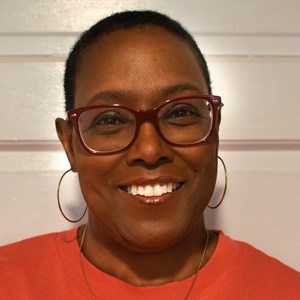For years, my master had done his utmost to pollute my mind with foul images, and to destroy the pure principles inculcated by my grandmother, and the good mistress of my childhood. The influences of slavery had had the same effect on me that they had on other young girls; they had made me prematurely knowing, concerning the evil ways of the world. I knew what I did, and I did it with deliberate calculation.
Harriet Jacobs/Linda Brent
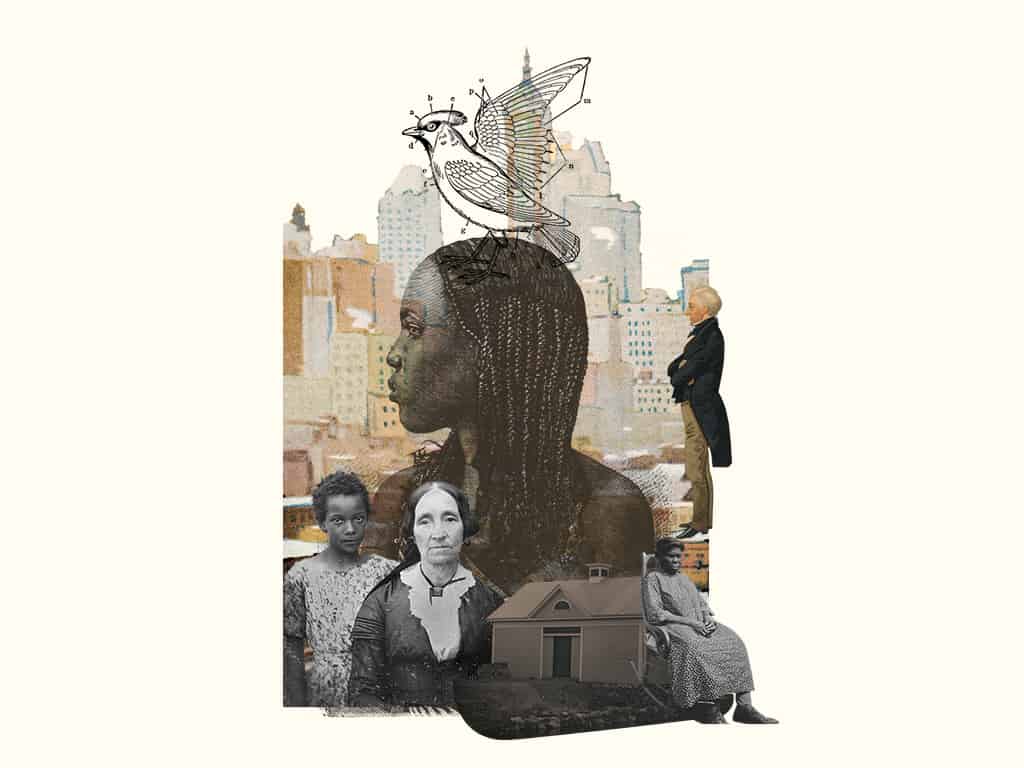
Incidents in the Life of a Slave Girl
Harriet Jacobs/Linda Brent
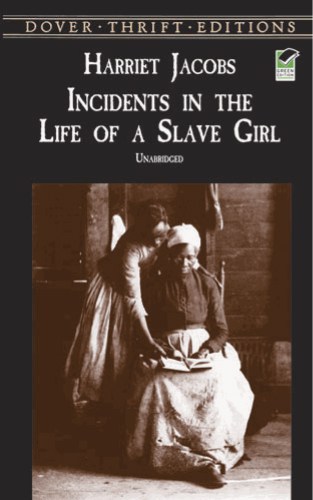
Jacobs, Harriet. Incidents in the Life of a Slave Girl. Dover Thrift Edition
"Incidents in the Life of a Slave Girl" by Harriet Jacobs/Linda Brent recounts the particularly woman-centered experiences of Harriet Jacobs as a slave girl.
She begins her life like most slave children, fairly unaware of her position in society. On the surface, her life seems as normal as any other. She’s a child who plays, sees her grandmother regularly and who waits anxiously for her father to come home at night. But then she learns that she is enslaved, that her life is not her own. When she turns fifteen, her owner sets his sights on her sexually and she must make crucial decisions about her womanhood. After giving birth to two children and hiding in her grandmother’s crawlspace for seven years, she escapes to freedom.
Why This Text is Transformative?
Incidents in the life of a Slave Girl addresses the particular issues of being a woman and a slave.
Incidents in the life of a Slave Girl addresses the particular issues of being a woman and a slave. Few slave narratives focus on these specific details. Jacobs is writing about early Black feminism and bringing the question of Black female empowerment into the feminist conversation that won’t really accept it for quite some time.
A Focused Selection
Study Questions
Chapters 1, 2, 5 and 10
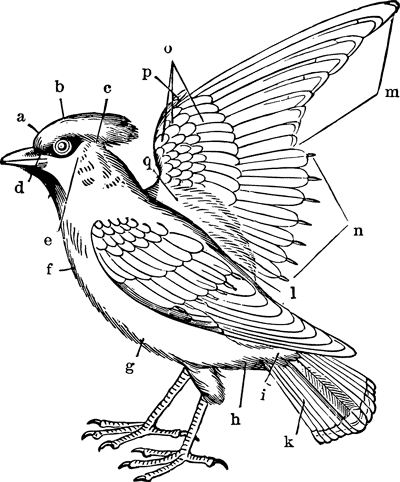
Chapters 1, 2, 5, 10 provide an opportunity for the students to understand the early life of slaves and general life as an enslaved person, particularly as it relates to being a woman. Chapters 17, 21, 39, 41 helps the students see that the enslaved African was indeed an agent of his/her own freedom and that resistance was natural and common
Class 1 – Chapters 1, 2, 5 and 10
1) These chapters, Jacobs presents her life as a slave child. What are some common experiences she has with children not in her predicament? What rhetorical value do these experiences have for the reader?
2) As a teenager, Jacobs must suddenly protect herself from the sexual advances of her master. She makes a startling decision to give herself to a different man, one of her choosing, and one who she hopes will set her children free. She says, ‘I knew what I did, and I did it with deliberate calculation.” Have you ever made an unpopular but necessary decision to support yourself or someone you love?
Chapter s 17,21, 39, and 41
Class 2 – Chapter s 17,21, 39, and 41
1) Jacobs escapes and hides in a small crawl space in her grandmother’s shed for 7 years. What do her actions say about her sense of herself as a human being and her moral expectations?
2) Jacobs is frustrated that her friends must “buy” her freedom. What price would you pay for your freedom? Have you ever had to deal with the loss of freedom due to circumstances out of your control?
Building Bridges
A Recommended Pairing
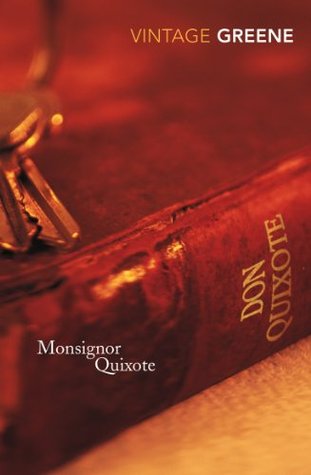
A wonderful short novel by Graham Greene, Monseigneur Quixote, recasts Cervantes’ magnum opus in a way that captures much of the humor and pathos in a more modern context, as the adventures of a Roman Catholic priest and a communist mayor taking to the road together in Spain during the Franco years. The richly imagined characters and their conversations make it clear that the issues that drive Don Quixote’s idealistic quest are not raised only in books of chivalry. How do we live with a commitment to the ideals of a religious faith or a political ideology which, though noble, may not fit easily with and may have unfortunate consequences in the unforgiving world in which we find ourselves? What difference does friendship make in our lives?
Supplemental Resources
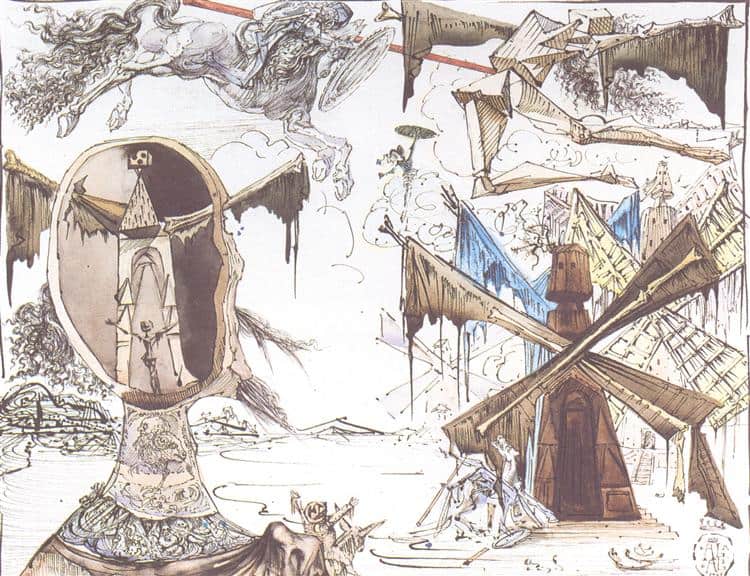
Don Quixote and the Windmills, 1945 - Salvador Dali - WikiArt.org
Don Quixote has been an inspiration for many visual artists. Spanish surrealist Salvador Dali returned to the novel multiple times throughout his long career, creating sketches, paintings, and sculptures of Don Quixote and Sancho, depicting important episodes in the book. A pairing of an episode with one of Dali’s works can lead to a stimulating discussion.
What details do students notice? What do his artistic choices suggest about his interpretation of the characters? To the extent that students are familiar with the story of Don Quixote, it is likely to be as it is filtered through the musical The Man of La Mancha. The musical has its own merits, and is framed by the interesting device of placing Cervantes on stage as a narrator, but of course it is impossible for it to capture much of the complexity of the book – and it alters the ending dramatically. Students may find it interesting to compare the two endings.
Text Mapping
Discipline Mapping
English/Composition Studies
Humanities
History
Area Studies
Page Contributor
